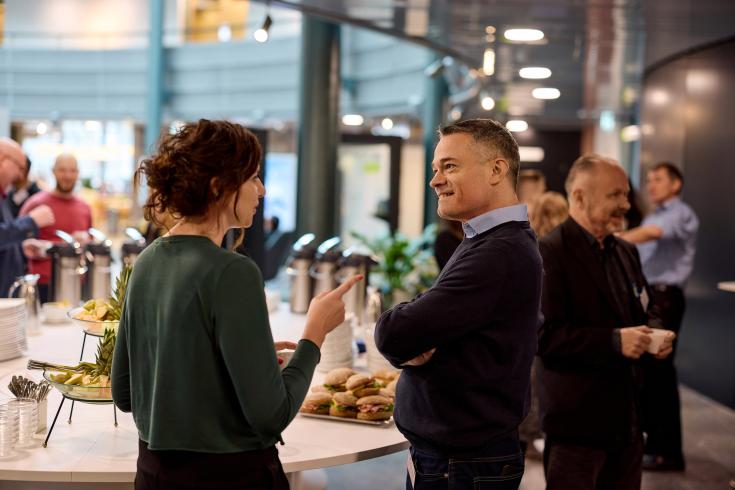Green public procurement: Key learnings

On 27 April 2023, the Policy Learning Platform hosted the first webinar of the waste prevention series focusing on green public procurement.
During the webinar, several good practices from across Europe were put forward, coming from Interreg Europe projects: GPP-Stream, GPP4GROWTH, REDUCES, and ENHANCE. The practices focused on legislation and green public procurement to stimulate waste prevention. Watch the recording, explore the key learnings, and download the presentations below.
Webinar agenda
Navigate the agenda below to the topic of your interest.
The webinar has been designed and moderated by Astrid Severin and Magda Michaliková, Thematic Experts of Environment and resource efficiency.
00:01:00 Introduction by Magda Michaliková on the topic of green public procurement
00:09:06 Keynote speech by Sabina Nicolella, Ecosistemi Foundation, Italy, on Leading the way to waste prevention through Green Public Procurement (GPP-Stream)
00:21:47 Q&A: If you had to choose one area which could have the highest impact in waste prevention in the public sector, which one would it be?
00:25:57 Q&A: Green public procurement is not a new concept but it has not been taken up widely yet. Do you think we should prohibit non-green public procurement in some areas?
00:28:51 Q&A: Are there any specific guidelines by the European Union to maintain or increase green public procurement?
00:32:11 Presentation on Brian Quirke, Government of Ireland on Ireland’s Green Government Initiative (GPP4GROWTH)
00:42:48 Q&A: What would be the best place to start?
00:46:24 Q&A: You presented that Ireland's Programme Government 2020 has mandated the inclusion of green criteria in all procurements within 36 months. How is the progress?
00:48:50 Q&A: How are you monitoring and how do you collect data?
00:53:52 Presentation by Teresa Soto, Regional Government of Valencia, Spain, on Green Guide on Environmental Criteria for Regional Public Procurement in Building Sector (REDUCES)
01:06:09 Q&A: Are you looking for ways to reuse existing old buildings as a first step before building new ones?
01:07:31 Q&A: Do you have a list of suppliers with products that match your criteria?
01:11:24 Presentation by Nadia Galluzzo, Region of Liguria, Italy, on Regional GPP Plan (ENHANCE)
01:22:59 Q&A: In Italy, are only goods and services mandated to use green public procurement or also the criteria to use them?
01:25:46 Q&A: Are there arrangements in place to monitor the implementation of green public procurement?
01:28:24 Q&A: Did the local market adapt easily to the green public procurement criteria?
Key learnings
- Using their enormous purchasing power (1.8 trillion Euro, 2022), European public authorities can lead the way to greater waste prevention through green public procurement (GPP).
- Green public procurement improves EU competitiveness, by investing in green products and services, EU authorities can support and reward businesses which are more environmentally friendly.
- Waste prevention is inherently a part of green public procurement, waste reduction can be achieved through ecodesign, extended guarantee period, prioritizing the use of recycled materials, reuse, reduced use of packaging.
- Among the key sectors to focus with GPP in the context of waste prevention, are the construction sector (manufacturing, building, demolition) and the food and catering sector.
- Many countries and regions have developed or are in the process of developing GPP strategies including targets and action plans.
- The panelists of the webinar underlined that also the market in the EU is well established with many companies offering green services and goods. However, despite the huge demand and sufficient supply, many regional and local authorities are still struggling with the implementation of green public procurement.
- The speakers underlined that a lot of awareness raising, training, guidance, list of companies and showcasing of good examples is necessary to bring the implementation up to speed.
- Monitoring and the access to data on GPP needs to be stronger developed to better understand the impact on waste prevention and to make better policy decisions.
- The participants expressed a need to better understand how to work with the market.
- Making GPP mandatory can help to drive the EU market towards sustainability and waste prevention.
Presentations
Download the presentations below.
